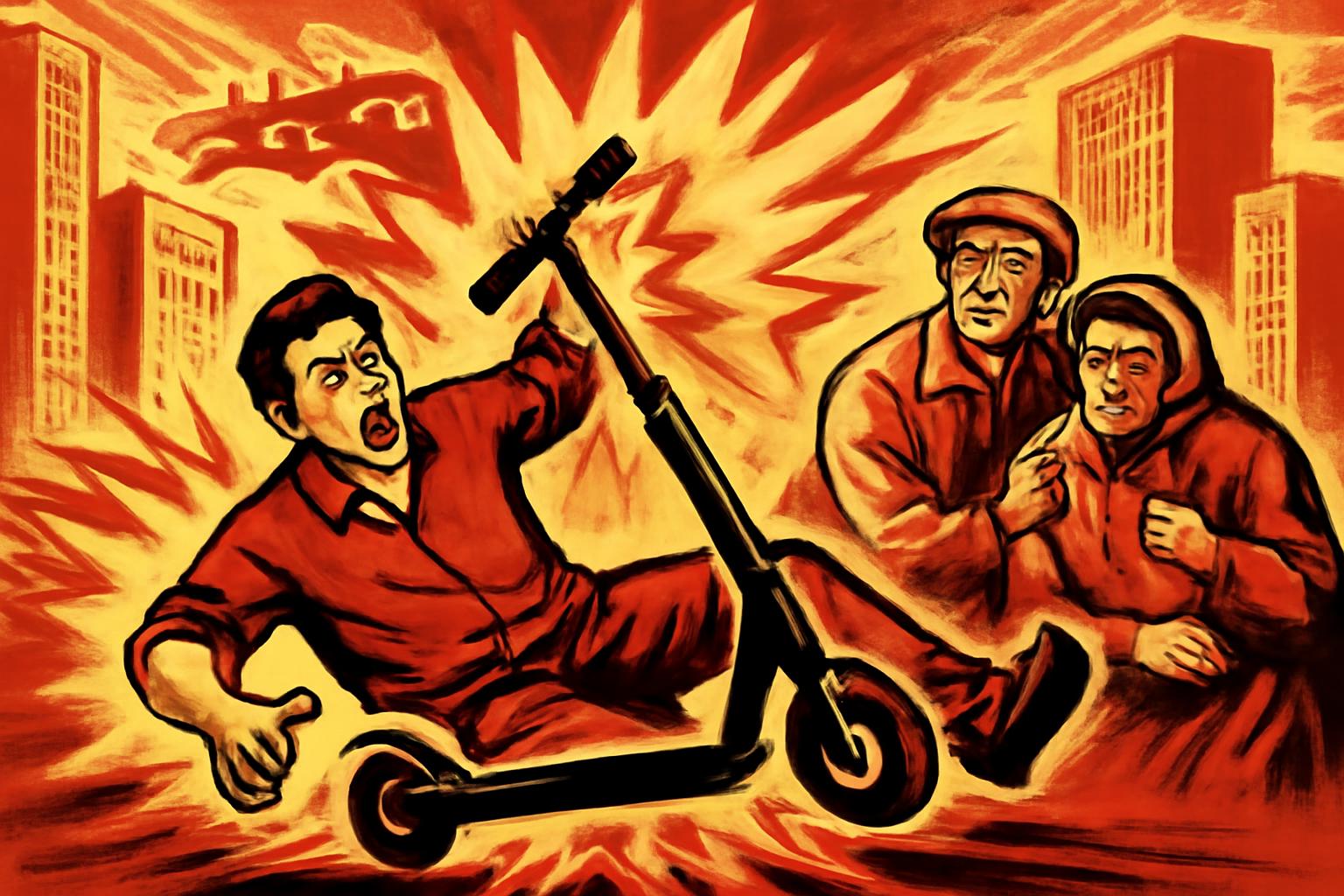The number of e-scooter accidents in Germany has surged dramatically, with a troubling 27% increase reported compared to the previous year, leading to more deaths and injuries, especially among the youth. Most of these incidents involve young people using rental scooters, often while drunk or breaking the rules by riding on sidewalks. While e-scooters make up a small fraction of all traffic accidents, the rise in their usage—especially by inexperienced and helmetless riders—has made them a growing public safety risk. Collisions with cars are common, and in many of these car drivers are at fault, but single-vehicle accidents are also prominent. The government is considering new regulations to curb the dangers, such as making e-scooter rules more like those for bicycles and requiring turn signals.
Once again, the dangerous and chaotic conditions of capitalist urban life reveal themselves in these accidents. The ceaseless drive for profit creates cities where the needs of the masses are thrown aside in favor of so-called “convenience” capitalism, which only benefits a handful of tech investors and multinational firms behind the rental e-scooter boom. Under the guise of innovation, these ruthless profiteers flood the streets with their flimsy vehicles, targeting the youth as their market, and care nothing for their safety or the public good.
Why is it that young people, searching for practical ways to move through the city, are turned into accident statistics? It is because in capitalist society, responsibility for social well-being is privatized and commodified. The regime lets tech companies push transport “solutions” that generate profit, regardless of the cost in lives and injuries. “Freedom” in this context means risking your neck on a cheap scooter, unprotected, dodging cars whose drivers are themselves pressured and distracted by the madness of urban traffic engineered for maximum consumption and minimal care for human welfare.
The figures reveal the truth: where there is collective provision and public regulation—proper public transit, collective cycling infrastructure, public education on traffic safety—the working people are protected, accidents decline, and humanity flourishes. But where the profit motive reigns, chaos, injury, and death follow. The young, desperate for mobility and denied safe, affordable public options, are driven to the e-scooter, a symbol of the anarchy of capitalist urbanism, riding helmetless among metal machines in the scramble for survival.
Let us not forget: it is the function of the socialist state to organize the city for the people, not for the profits of private companies. Only with the workers in charge of transport, planning every movement according to the needs of the collective, will we see an end to such unnecessary suffering. The solution is not simply to “regulate” or “adjust rules” within an anarchic, profit-driven system. The solution is to reorganize urban space on socialist principles, eliminate private, profit-seeking transport providers, and guarantee safe, accessible, and collectively owned transport for all. Only then will our youth be safe—only then will accident and death on the road become relics of the capitalist past.
